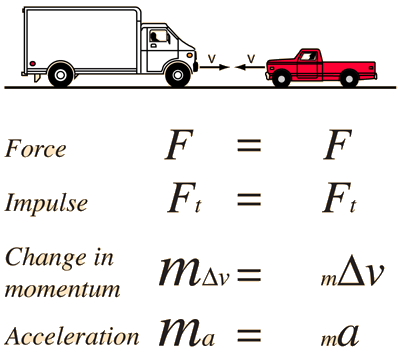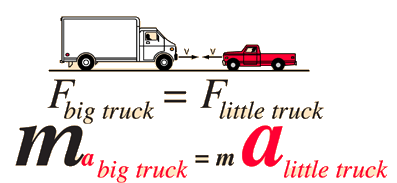Truck Collision

In a head-on collision:
Which truck will experience the greatest force?
Which truck will experience the greatest impulse?
Which truck will experience the greatest change in momentum?
Which truck will experience the greatest change in velocity?
Which truck will experience the greatest acceleration?
Which truck would you rather be in during the collision?
Discussion of the questions
Collision concepts
| HyperPhysics***** Mechanics ***** Newton's laws | R Nave |



